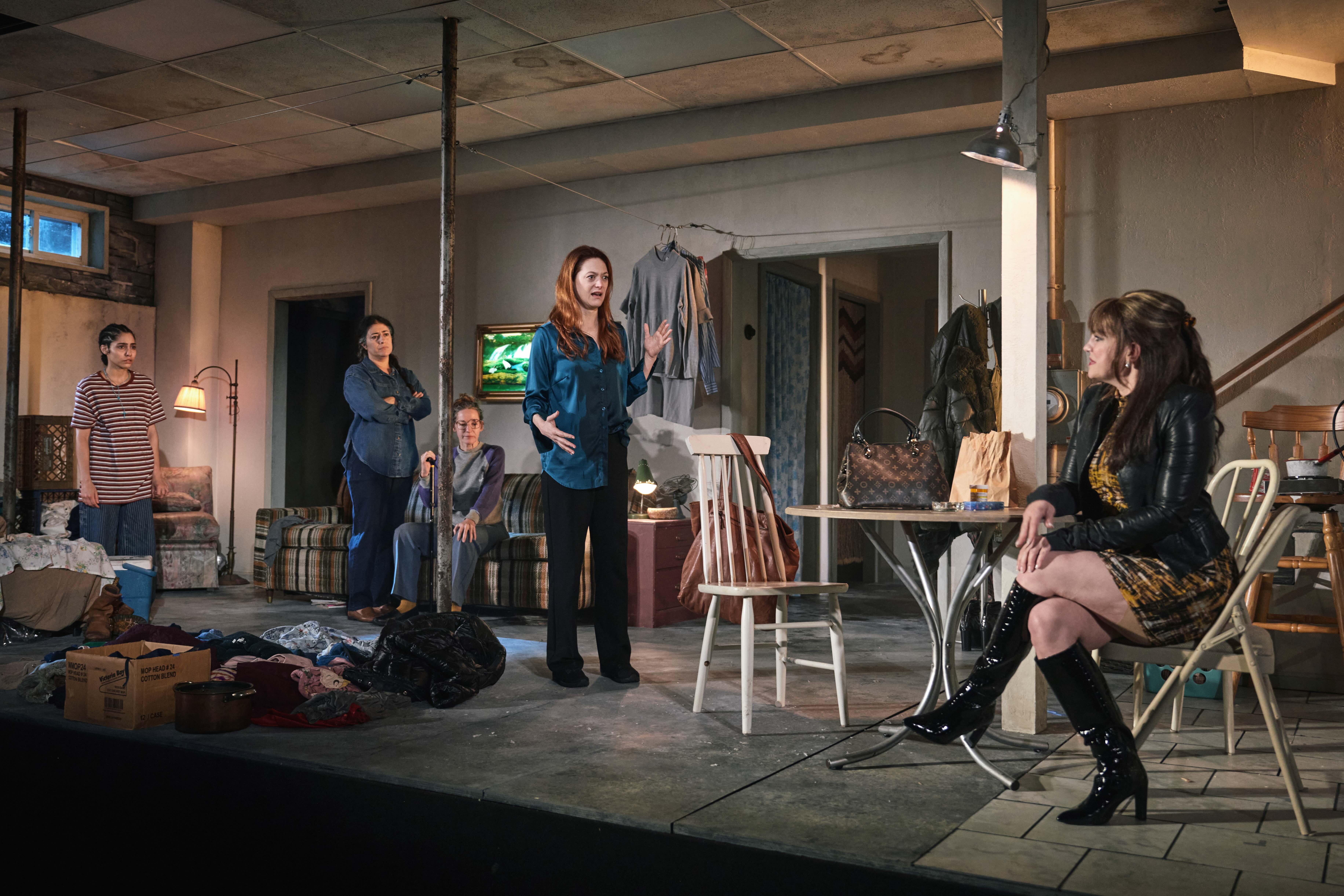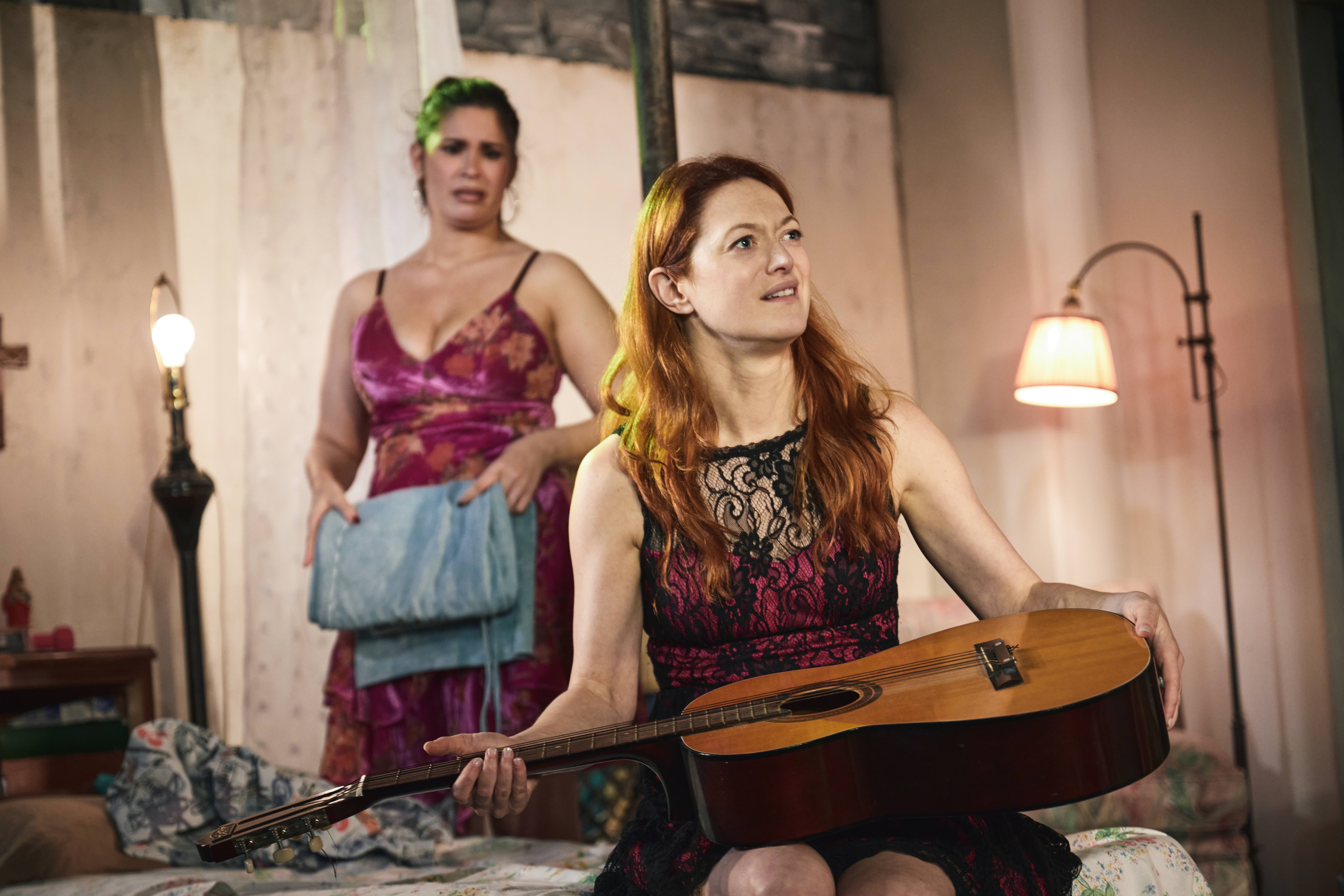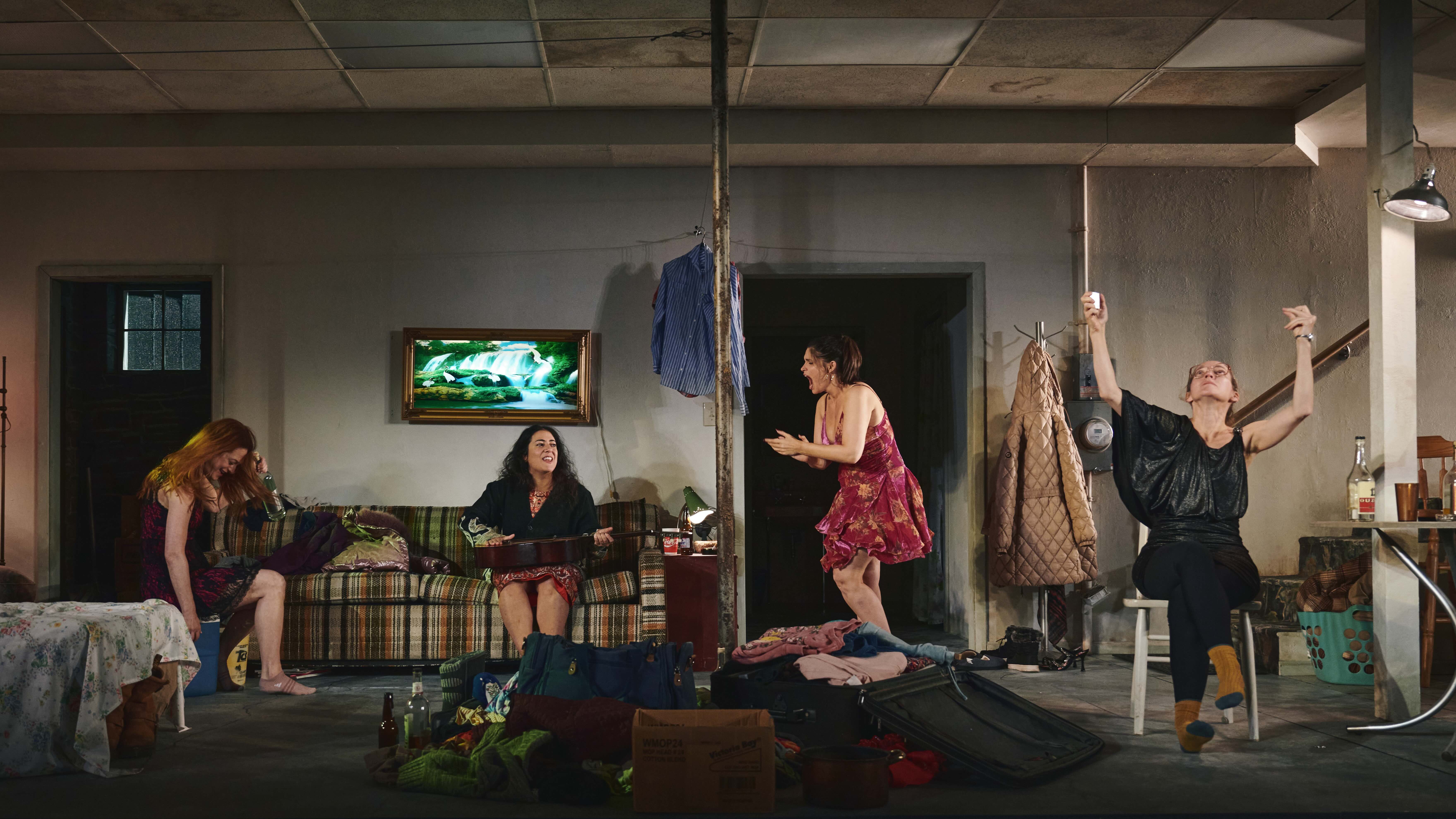
Immigration stories often focus on what a journeyman gains and what fortune awaits in a new land. But people leave things, too. Especially when they’re in a hurry — tangible things like clothes, complicated things like daughters, and intangible ones like memories. Martyna Majok’s Queens concerns itself with the forsaken. It’s a stirring, darkly beautiful meditation on the lives a specific group of immigrant women have left behind and the new ones they pieced together in New York City’s most diverse borough.
Queens toggles between two bifurcating timelines: the first, a winter night in 2001, traces the quotidian chat of Polish Renia (Marin Ireland), Belarusian Pelagiya (Brooke Bloom), Afghani Aamani (Nadine Malouf), and Honduran Isabela (Nicole Villamil) in an illegal basement apartment. The second, set in 2017, finds Renia now older, caring for the ailing homeowner upstairs and operating as a kind of pseudo-super for the underground tenants. New to the home in this latter timeline is a young Ukranian named Inna (Julia Lester), who has come to Queens in search of her mother.
There’s a knowing and simple beauty to the way Majok’s script mirrors itself. Lines once chanted to Renia upon her arrival resurface, sixteen years later, from her own mouth to Inna. By then, the rent has ballooned and the kitchen has become an unserviceable fire hazard, but the bathroom still works. And lucky for Inna, she has the best room with two windows. (She should keep them closed, though. Otherwise, the mice drop in). The repetition of dialogue echoes the cycles of women pouring in and out of Port Authority — searching for someone, fleeing something, joining family, or leaving it behind.

Ireland is a transfixing Reina. I am convinced actors do not get much better than her. Every time I have witnessed Ireland on stage, it is like I am learning her anew. It’s the same blonde hair, same searching eyes, but every gesture re-shaped by theatrical circumstance. Here, she expertly carries the story’s hinge between timelines — demure and reticent when she first arrives at the apartment, but hardened and selectively empathetic later on when she’s in charge of the place. The aged Reina goes so far as to echo Donald Trump’s language around immigration bans, saying “He did lotta great things already, not even one year president, and now all the bad countries can’t even fly here.” Ireland does not shy away from her character’s descent towards insidiousness and greed, and by the second act, Majok has Reina’s language curdle into capitalist musings about boots, buildings, and stepping on people’s backs — an overflow of a particularly American brand of capitalistic jargon.
Ireland is far from the only blip of brilliance onstage. This orchestra of women delivers delicious, emotional work, even if their accents do not always seem in harmony with the country they are supposed to be from. Still, the ensemble satisfyingly represents the patchwork of women crossing seas, changing names, orienting their mouths around English letters in pursuit of the American Dream.
Majok, to her credit, never romanticizes their struggle nor does she ignore their poverty. It’s difficult for these characters to stretch beyond low-paying, low-skill jobs. Hours become a measurement for wages, which become a measurement for life. Isabela makes it plain: “All this clothes I wear, this shoes, is probably like, whole day of working. This whole room is like half year working. One half year of my daughter’s life... that I’m not with her... is here on the floor.” It’s a devastating articulation of the cost of labor, a call back to Majok’s masterwork.

It should also be noted that Queens is quite long. Director Trip Cullman has the challenge of guiding our attention for more than two hours and 30 minutes through the emotional beats and time hops. Queens is rarely laugh-out-loud funny, but mercifully, there are bright moments. In one scene that won’t be leaving my psyche anytime soon, the women (in the 2017 timeline) celebrate Isabela’s final night in the basement with a toast. They clink bottles of bottom-shelf liquor and, suddenly, a familiar theatrical and screen tableau — a group of women commiserating about life over drinks — feels entirely new.
How rarely do we see working-class women in this common ritual of release? Popular culture has taught us that this geometry of togetherness belongs to linen-clad women drinking white wine. But why not cheap vodka and even cheaper tequila and mismatched cups? These women’s circumstances make them no less full of love, rage, blood.
Though first written in 2016, Queens arrives in New York at the right time. Fragmented mothers and daughters; consequences passed down to children like heirlooms; immigrants whose past lives stick to them like a shadow — these topics remain ever-present during the second Trump presidency. With Queens, Majok continues her habit of scripting theatrical poetry that’s inspired by sacrifice and caring for women who are so often uncared for off the page.
--
Queens is produced by Manhattan Theatre Club and plays at New York City Center Stage I through December 7.

